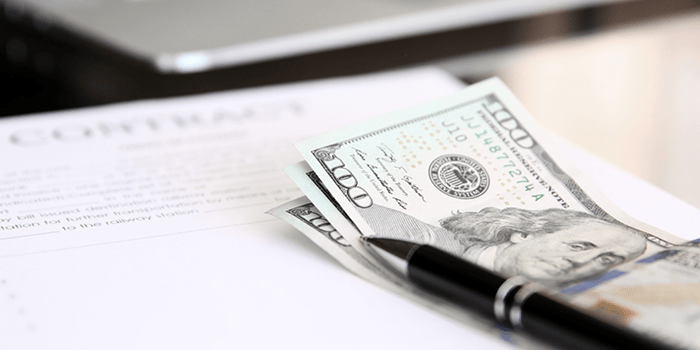What Are HOA Assessments, Fines & Fees?
Homeowners’ associations (HOAs) generate their operating funds by collecting HOA assessments, fees, and fines from members. This money allows the HOA to carry out its responsibilities, including maintaining shared spaces, saving for future repairs and improvements, and enforcing community rules and regulations.
While your HOA dues can vary by community type and location, the typical HOA fee for a single-family home can range between $100 and $300. Keep reading to learn more about the financial commitment of belonging to an HOA and to understand common community fees, fines, and assessments.
What is an HOA fee?
HOA fees, also known as HOA dues, are the monthly or yearly payments that homeowners are responsible for making. Renters may also be responsible for paying HOA fees, but usually, they’re included in their monthly rent. These fees are paid to the association and contribute to daily operational expenses and reserve funds for future repairs and improvements.
How are HOA fees assessed?
A board of directors runs the HOA. These boards consist of volunteer homeowners, and they’re responsible for setting the fee amount. When determining the exact payment required, a board will consider all operating, maintenance, and savings expenses, including items such as utilities, vendors, insurance, and other related costs. Fee amounts for your HOA will also be determined based on their needed reserve fund amounts. Unlike daily expenses, these funds help pay for future improvements and repairs for things like pools, parks, and clubhouses.
What do HOA fees cover?
Typically, your HOA fees will be directly tied to the size, cost, and complexity of your association's shared amenities. What your fees cover depends on your association. The following are often covered by HOA dues:
- Maintenance
- Landscaping
- Reserve Funds
- Insurance
- Security
- Utilities
Are HOA fees worth it?
Before you buy a home that’s part of an HOA, make sure you’re familiar with any fees you may be responsible for paying. You’ll need to decide for yourself if these fees are worth it. Consider the amenities they offer and the benefits they provide to the homeowners. Keep in mind, HOAs also offer a lot of things that are difficult to quantify. An HOA can help protect your home's value by maintaining the look and feel of a neighborhood, and for some people, it provides a real sense of pride and community.
RELATED: HOA Fees: A Breakdown Of All Charges

What’s an HOA fine?
Fines aren’t the primary source of income for an HOA. Instead, HOA fines are used to help enforce community guidelines, as outlined by their governing documents. Fines are issued when a violation of community rules and standards occurs. These rules can vary but may include things like ignoring lawn care, parking in undesignated areas, or violating noise restrictions.
Can my HOA give me a fine?
Yes, owners can be warned or fined for not following agreed-upon rules and regulations. Most violations will be resolved with a friendly verbal or written reminder, and your board will work with you to resolve most issues. When problems persist, HOAs can issue a monetary fine.
What is a typical HOA fine?
Your HOA board determines fine amounts and whether they’re reasonable. Most HOA fines start at around $25 and increase to $50 and $100 if you don't pay or continue to violate the rule. The type of violation also influences the fine amount. To encourage people to pick up after their dogs, for example, an association may set higher fines of $100 or more for this particular violation. If you believe a set fine amount isn't reasonable, you can help change it. Work with your board to make sure any fine your HOA issues is reasonable and fair.
"Remember: your rules exist to benefit all homeowners. If the rule no longer serves the community, change it." - Michele Nadeau, CMCA®, AMS®, PCAM®, General Manager
How do HOAs enforce fines?
HOA fine enforcement usually starts and ends with a warning. Your HOA will likely have an escalation protocol when it comes to fines. It usually begins with educating new homeowners. People who are more familiar with the community rules may receive a formal letter or phone call to correct any violations. At this stage in the process, a fine may be given, and the offense should be quickly fixed, and the fines paid. When fines aren’t paid, additional fees may be added depending on your community’s governing documents and local, state, and federal laws.

What’s an HOA assessment?
Occasionally, an HOA assessment, or special assessment, is needed to pay for an unexpected cost. This could be an increase in insurance or a surprise repair bill for a pool or clubhouse. In these cases, the board has the option to pass a special assessment to cover the additional costs.
How are HOA assessments calculated?
HOA assessments are almost always tied to direct cost. How your HOA divides that cost is up to the board and the governing documents. It’s common for an HOA to share the total costs equally amongst all homeowners. For example, if there were an unexpected elevator repair of $100,000, then the board may ask each of its 100 residents to pay $1,000 to cover the total repair bill.
Can you claim an HOA assessment on your taxes?
Yes, you should be able to claim HOA assessment payments on your taxes if they were used for maintenance and repairs. However, always check with your tax professional before claiming special assessment payments on your taxes.
Can I refuse to pay a special assessment?
Most HOAs look at special assessments as a last resort and are keenly aware of the financial burden they may place on homeowners. When your HOA requests an assessment payment, you're legally required to pay it. In some extreme circumstances, it’s conceivable that an HOA will place a lien on your property to collect a back payment. However, your HOA should work with you to make sure all debts are paid in a way that is mutually beneficial to the homeowner and the association.
Beyond HOA Assessments: More Financial Facts
HOA assessments, fines, and fees are critical to community living. At Associa, we've helped tens of thousands of board members successfully set budgets and maintain financial stability. Download our Annual Budget Best Practices for HOA Boards ebook now.
This article was developed using educational resources and governance standards published by Associa and other nationally recognized community association organizations.